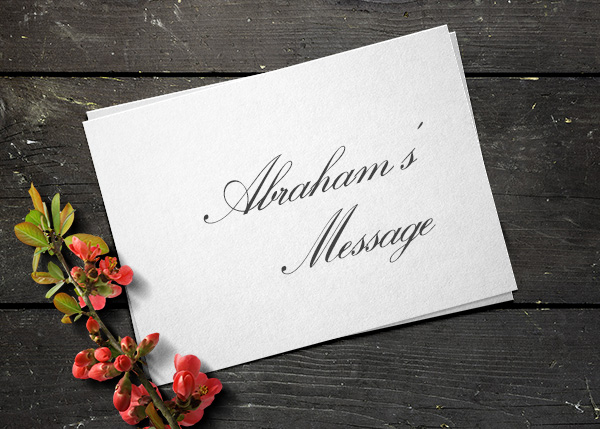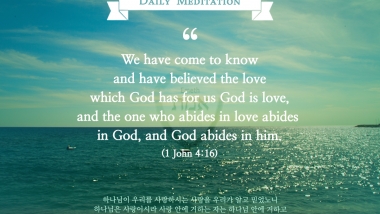
Faith of Crossing the River 1 (Joshua 3: 5)
Crossing a river in the Bible does not simply means physical movement, but the beginning of a new life and transition of a life style. Therefore, crossing the river requires the act of faith.
In the case of Jacob, there was a struggle of prayer when crossing the Jabbok River. In his heartbreaking prayer, with the spirit of solitude, that he would not give up until he was answered, Jacob then crossed the Jabbok over the pain of his dislocated thigh socket. Jacob’s prayer teaches us that we must pray until the answer is received.
When Moses crossed the Red Sea, he did not cross with his own power and ability. He pushed out the “staff of God” (Ex 4:20) that he had in his hand toward the Red Sea. As a tool of God's power, the staff enabled the Exodus. Moses was in the midst of a crisis, stuck between the Red Sea and the army of Pharaoh, but overcame it with the staff of God and crossed through the dry land of the Red Sea.
After his journey to the wilderness, Joshua had to cross the Jordan River right before entering the land of Canaan. Joshua's faith across the Jordan River was "holiness.” "Consecrate yourselves, for tomorrow the LORD will do wonders among you” (Joshua 3: 5). When the Israelites cleansed their hearts and minds, God stopped the rapid stream of the Jordan and safely lead them over into the Promised Land.
We can be a true Hebrew with faith by praying like Jacob, having faith in God's power like Moses, and sanctifying oneself like Joshua.
Excerpt from the sermon of Rev. Abraham Park
 [Read] Daily Meditation - 1 John 4:16
[Read] Daily Meditation - 1 John 4:16
 [Read] Daily Meditation - Proverbs 28:13
[Read] Daily Meditation - Proverbs 28:13









